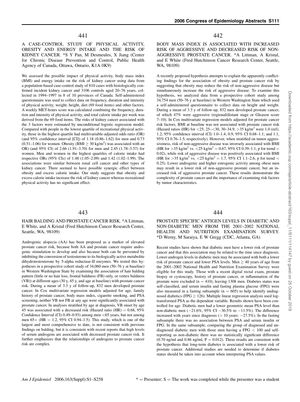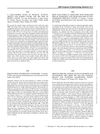Body Mass Index Is Associated With Increased Risk Of Aggressive And Decreased Risk Of Non-Aggressive Prostate Cancer
June 2006
in “
American Journal of Epidemiology
”

TLDR Higher BMI is linked to a lower risk of non-aggressive prostate cancer and a higher risk of aggressive prostate cancer.
The document presents findings from a study that examined the relationship between body mass index (BMI) and the risk of prostate cancer, with a focus on the aggressiveness of the disease. The study involved 34,754 men aged 50-76 years from Western Washington State, who were followed for an average of 3.3 years. During this period, 832 men developed prostate cancer, with 47% of these cases being aggressive. The results showed that while overall prostate cancer risk was not associated with BMI, there was a differential association when stratifying by tumor aggressiveness. Specifically, higher BMI was associated with a decreased risk of non-aggressive prostate cancer (HR for >35 kg/m² vs. <25 kg/m² = 0.67, 95% CI 0.39–1.1, p for trend = 0.02) and an increased risk of aggressive prostate cancer (HR for >35 kg/m² vs. <25 kg/m² = 1.7, 95% CI 1.1–2.6, p for trend = 0.25). These findings suggest that obesity may have a complex role in prostate cancer risk, potentially lowering the risk of non-aggressive forms of the disease while increasing the risk of aggressive forms.




